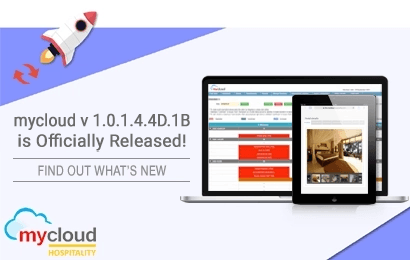In the ever-evolving hospitality industry, the conventional approach to hotel pricing—especially regarding refundable rates—is being closely re-evaluated. With shifting traveler preferences and changing market dynamics, hoteliers must adapt their rate strategies to stay competitive and maximize revenue.
Traditionally, hotels have balanced refundable and non-refundable rates, with the latter priced lower to encourage bookings. This system allowed guests to choose based on their budget and flexibility needs. However, emerging trends show a rising preference for flexibility, pushing hotels to refine their dynamic pricing strategies to meet evolving guest expectations.
Let’s dive deeper into this transformation and what it means for the industry!
Problems with Refundable Hotel Rates
While refundable hotel rates provide guests with flexibility and peace of mind, they pose several challenges for hoteliers in terms of revenue predictability, operational efficiency, and competitive positioning. Here are the key issues associated with refundable rates:
- Financial Risks for Hotels: High cancellation rates can lead to unpredictable revenue streams, making it challenging to manage occupancy and forecast earnings accurately.
- Uncertainty for Guests: Over-reliance on refundable bookings can result in last-minute cancellations, leaving guests with fewer accommodation options during peak times.
- Competitive Pressure: Hotels may feel compelled to offer refundable rates to stay competitive, potentially leading to a race to the bottom in pricing and profitability.
Benefits of Non-Refundable Rates
Implementing non-refundable rates is a strategic move for hotels, offering financial stability, better revenue management, and improved guest commitment. While refundable bookings provide flexibility, non-refundable rates ensure secured revenue, reducing the impact of last-minute cancellations. Here are the key advantages:
- Improved Revenue Management: Guaranteed bookings provide a more predictable revenue stream, allowing for better financial planning and resource allocation.
- Reduced Cancellations: Guests are less likely to cancel when they’ve committed financially, leading to more stable occupancy rates.
- Better Guest Experience: With fewer last-minute cancellations, hotels can manage their inventory more effectively, ensuring that committed guests receive the best possible service.
Why Refundable Rates Are Gaining Popularity in India
In recent years, Indian travelers have increasingly leaned towards refundable hotel rates, valuing the flexibility they offer. A survey by MakeMyTrip revealed that 43% of Indian travelers now prioritize flexible booking options when choosing hotels (PhocusWire). This shift isn’t just a passing trend—it reflects deeper changes in travel behavior, influenced by evolving lifestyles, unpredictable schedules, and post-pandemic concerns.
So, what’s driving this growing demand for refundable rates in India? Let’s explore the key factors shaping this shift!
Reasons for Popularity in India:
- Rise in Domestic Tourism: With an increase in domestic travel, often planned on short notice, travelers prefer flexibility as plans are subject to change.
- Unpredictability Post-COVID: The pandemic has heightened awareness of unforeseen disruptions, making guests value the peace of mind that comes with flexible booking options.
- Business Travel Changes: Fluctuating corporate schedules have led businesses to seek refundable rates to accommodate last-minute adjustments.
Example: OYO Rooms introduced flexible cancellation options for corporate travelers, resulting in an 18% increase in corporate bookings.
Role of Hotel Software and Hospitality Technology
In today’s digital-driven hospitality industry, hotel software plays a crucial role in optimizing rate strategies, enhancing guest satisfaction, and improving revenue management. With the help of advanced tools, hotels can streamline pricing decisions, automate bookings, and gain valuable data insights to make informed business decisions. Here’s how:
- Dynamic Pricing Management: Advanced systems enable hotels to adjust rates in real-time based on demand, competition, and market conditions.
- Automation of Policies and Bookings: Automated platforms streamline the booking process, applying cancellation policies efficiently and reducing manual errors.
- Data Analytics and Insights: Leveraging data analytics allows hotels to understand booking patterns, guest preferences, and cancellation trends, facilitating informed decision-making.
- Enhanced Guest Communication: Integrated communication tools ensure guests are well-informed about booking terms, leading to increased satisfaction and reduced disputes.
Creating a Balanced Rate Strategy
To optimize revenue and cater to diverse guest preferences, hotels must strike a balance between flexibility and financial security. A well-structured rate strategy ensures that both the hotel and its guests benefit from clear, transparent, and strategic pricing. Here’s how hotels can achieve this balance:
1. Offering Both Refundable and Non-Refundable Options
A one-size-fits-all approach does not work in the modern hospitality industry. Hotels should provide both refundable and non-refundable pricing options to accommodate different traveler needs.
- Non-Refundable Rates: These are typically priced lower, appealing to budget-conscious travelers who are certain about their stay dates. These rates help hotels secure guaranteed revenue with minimal risk of last-minute cancellations.
- Refundable Rates: Offered at a premium (e.g., 10-20% higher than non-refundable rates), these cater to travelers who prioritize flexibility, such as business travelers, families, and international tourists.
Example: Many luxury hotels, including ITC Hotels, now charge a premium for refundable bookings, ensuring revenue protection while giving guests the flexibility they seek.
2. Clear Communication of Policies
Transparency in pricing and cancellation policies is critical for building guest trust and preventing disputes. Miscommunication regarding refunds and cancellation fees can lead to dissatisfaction, negative reviews, and reputational damage.
To ensure clarity:
- Clearly display refund policies at the time of booking on hotel websites and third-party platforms.
- Send automated pre-arrival reminders outlining cancellation rules.
- Provide examples of refund scenarios to avoid confusion.
Example: Many leading hotels now use hospitality technology for hotels to integrate automated booking confirmation emails with a detailed cancellation policy, reducing guest disputes and improving satisfaction.
Real-Life Examples of Indian Hotels Adopting Flexible Rates
As the demand for refundable hotel rates grows, several leading Indian hotel chains have strategically adjusted their pricing policies to strike a balance between guest flexibility and revenue optimization. Here are three notable examples:
1. ITC Hotels – “Book Smart Flexi Plan”
ITC Hotels introduced the “Book Smart Flexi Plan,” where guests opting for refundable bookings were charged 15% higher than the standard non-refundable rate. This approach allowed ITC to:
- Offer flexibility to guests willing to pay a premium for peace of mind
- Protect revenue by ensuring cancellations did not result in complete losses.
- Improve overall profitability, with the initiative contributing to a 12% increase in revenue.
This dynamic pricing strategy proved beneficial, particularly for business travelers and premium customers who preferred refundable options while still ensuring revenue security for ITC Hotels.
2. The Oberoi Group – Refundable Luxury Packages During Off-Peak Seasons
The Oberoi Group leveraged refundable rates strategically by offering refundable luxury packages during off-peak travel seasons. The key benefits of this initiative included:
- Attracting high-end travelers who might otherwise hesitate to book during low-demand periods.
- Encouraging advanced bookings by reducing the perceived risk of committing to travel plans.
- Driving occupancy rates up by 22% as more guests chose the flexibility of refundable packages.
By aligning refundable rates with seasonal demand, The Oberoi Group successfully enhanced occupancy levels and maintained steady cash flow even during slower periods.
3. Club Mahindra – Adjusted Cancellation Policies for Vacation Club Members
Club Mahindra, a leading vacation ownership brand, revised its cancellation policies for its loyal vacation club members, focusing on guest satisfaction. This change led to:
- Increased member retention and satisfaction, as guests appreciated the flexibility in rescheduling or canceling stays.
- A boost in bookings, as hesitant travelers felt more comfortable making advance reservations.
- Improved customer trust and long-term brand loyalty, further strengthening Club Mahindra’s reputation.
By adopting guest-centric refundable policies, Club Mahindra enhanced its customer experience and built stronger relationships with its members, ultimately leading to higher lifetime value per customer.
Conclusion
To stay competitive in today’s dynamic hospitality landscape, hotels must continuously assess and refine their pricing strategies. Evaluating the effectiveness of both refundable and non-refundable rate policies ensures that guest expectations align with revenue goals, striking the right balance between flexibility and profitability.
At the same time, embracing advanced hospitality technology is essential. Investing in a robust hotel management system can revolutionize revenue management by enabling dynamic pricing, automating booking processes, and leveraging real-time data insights. A platform like mycloud PMS is an excellent choice, offering a complete hospitality management solution with over 200+ interfaces, an Open API, and a fully integrated ecosystem—empowering hoteliers to make data-driven decisions with ease.
By rethinking pricing structures and adopting cutting-edge technology, hotels can maximize revenue, improve occupancy rates, and elevate the guest experience, ensuring long-term success in an ever-evolving industry.










